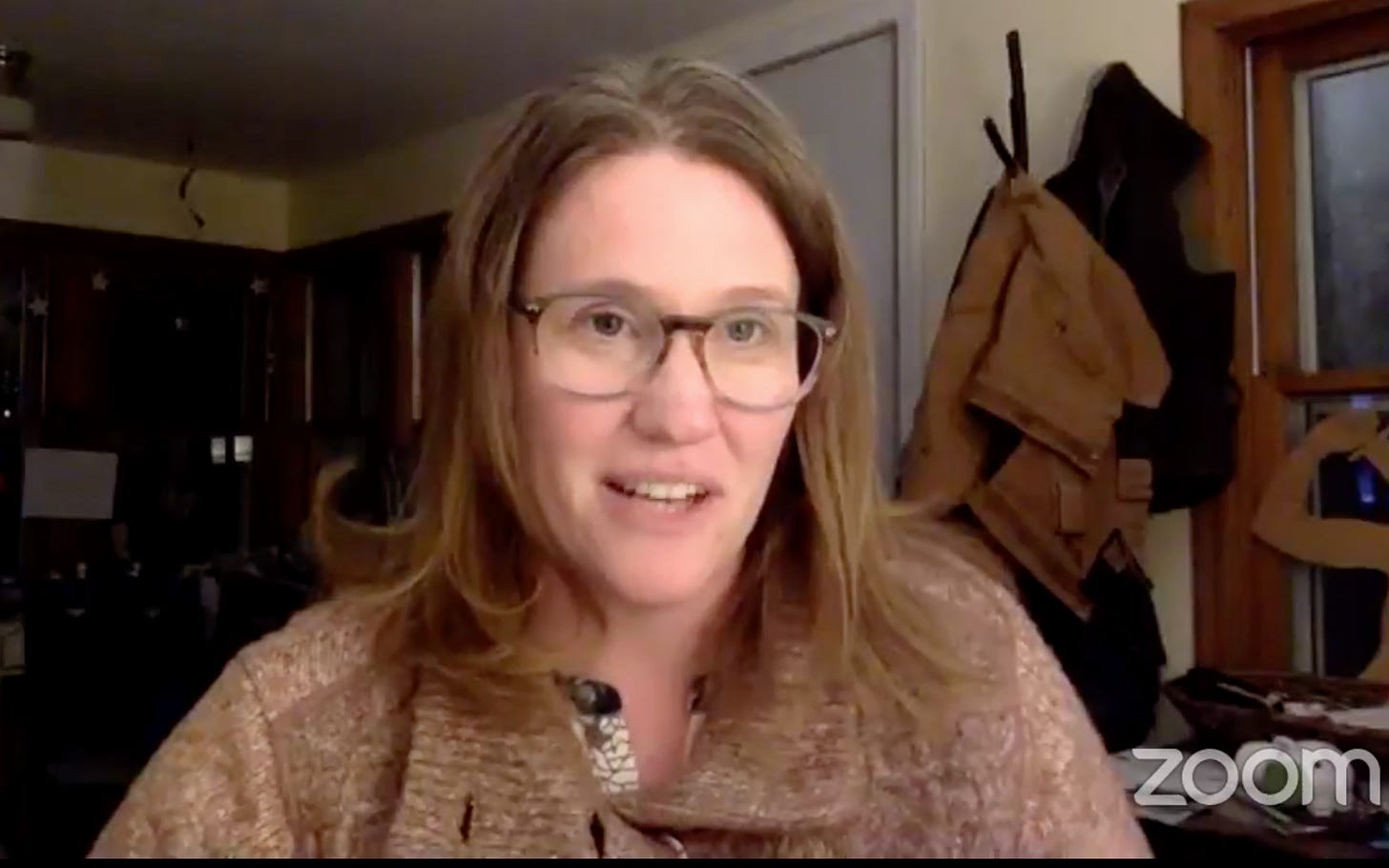Farm State Firestorm Over Repair
In an online town hall hosted by the Montana Farmers Union, farmers shared repair horror stories courtesy of John Deere and other Ag business giants. Here’s what we heard.
There was a moment in a recent online town hall by the Montana Farmers Union that perfectly summed up the absurdity of the repair dilemma in the U.S. - and just how much things have changed for U.S. farmers in the last quarter century when it comes to repair.
The moment came when MFU member Will Downs, a Montana Farmer, held aloft the printed service manual for a 1991 combine - the first combine he operated. The manual is fully eight inch thick. It doesn’t look like exciting bedtime reading, but — as Downs explains — it was indispensable to him in his work. “You could basically rebuild any part of that combine through that manual,” he recalled.

Alas, a quarter century later and those printed manuals have gone the way of the dinosaur, replaced with online service manuals access to which is controlled by the manufacturer, and which may require subscriptions to access. “Now access to any service bulletin is online through the dealer,” Downs observed. “That’s a hurdle there itself.”
And that’s assuming that the manufacturer even makes the service manual available. OEMs like John Deere and Caterpillar have severely restricted access to service and repair information. They deny access to tools for diagnostics and maintenance altogether. Farmers might pay hundreds or thousands of dollars for copies of service manuals while access to software to help diagnose problems with expensive agricultural equipment is provided only to authorized repair shops and dealers.
I can’t get anyone to come help me
The virtual town hall was held on February 8 and was designed to rally support for proposed right to repair bills pending in Montana’s. They include LC1562, a bill pending in the Montana House that specifically addresses repair of agricultural equipment and a more generic right to repair bill, HB 175.
In recent weeks, the Montana Farmers Union has come out strongly in favor of LC1562.
Farmer and MFU members like Eric Somerfeld said that the lack of repair options has real world consequences for Montana farmers in their day to day work. At the town hall, Somerfeld related the story of an air conditioner that failed in his John Deere combine in the heat of summer. “I needed to wait until John Deere could send someone out to hook up a computer just to tell me what the problem was.”
The result: Somerfeld “suffered through 7 hours sitting in a glass box at 90 degrees waiting for the dealer to show up.” In the end, the problem was a faulty valve that needed to be replaced. “If I had access to parts and a manual, great. But I had to wait for him to come out and hook (the service computer) up and say ‘oh yeah that’s what it is.’”
“I suffered through 7 hours sitting in a glass box at 90 degrees waiting for the dealer to show up.” - Eric Somerfeld, Montana Farmers Union
And when the problem makes the machinery unusable, the cost of not having repair options for farmers is more than just some discomfort.
“Our Case IH combines can harvest 1,000 bushels an hour,” Downs told the audience at the town hall, which included Montana State Representative Katie Sullivan (D-Missoula) who has sponsored LC1562. “Every minute that we’re not harvesting costs us a lot of money, especially if the next day is a storm event.”
Farmer Sarah Rachor said that she and her father operate a farm in Eastern Montana which has no John Deere dealer nearby. “I’m jealous of Will’s big book,” she said, commenting on the vintage 90s service manual.
Rachor told the group that, while most of her equipment is older, she frequently has balky sensors that shut down vital equipment at sensitive moments - “a tractor in the middle of haying or a combine on the first day of cutting soy beans.” Rachor said she would love an inexpensive device akin to the one she has for her vehicle: a bluetooth dongle that plugs into the OBD port on her car and sends error codes to her phone. “I would love to have that for a tractor. But I don’t and I don’t have a book. I have an operators manual that barely tells me how to drive it.”
Rachor said that her and her father farm alone and she was simply unable to get service technicians to come help her on her farm when problems arise. “We don’t have a recognizable name where people realize it’s a big deal. I can’t get people to take me seriously - maybe because I’m a woman. I can’t get anyone to come help me unless it’s my neighbors.”
Repair: A Basic, Montana Solution
There were plenty of stories like that at the town hall and what seemed like consensus. “Besides the equipment manufacturers, who is against legislation like this and for what reason,” asked MFU member and farmer Eric Bergman. “What is the rational argument against this?”
“This just seems like a basic, Montana solution to me.” - Sen. Mark Sweeney
Senator Mark Sweeney, a sponsor of companion right to repair legislation in the state, said that the bill was common sense. “For me it seems so basic. Minutes mean profits when you’re up against weather and time and you need to get the job done.”
Sweeney said the farmers and ranchers he visited wanted to see the right to repair bill passed - mainly for practical reasons. “You’re an independent source capable of fixing and repairing things, and you might not have dealer available in the small community where you live, but you have a mechanic there that’s able to help and get equipment out on the land. This just seems like a basic, Montana solution to me.”
No Slam Dunk
Alas, while it might be a “Montana solution,” and despite the enthusiasm for right to repair within the Farmers Union, passage of the right to repair bill is no sure thing, with some of the world’s largest manufacturers and agribusiness conglomerates lined up against it.
Rep. Sullivan gave a sense of that, noting that she heard from Ag business lobbyists almost as soon as she filed the bill to tell her that no right to repair bill was needed. “I’ve had lobbyists saying it’s not a real issue, that my constituents are lying to me,” she said. The challenge was articulated most clearly by Walter Schweitzer, the Montana Farmers’ Union President.
“We gotta remember: we’re taking on John Deere, Case New Holland, AGCO. Three of the largest equipment manufacturers in the world who make 85% of equipment that farmers use all over the world,” Schweitzer said. “We need to jump in and help (the bill’s sponsors),” he said.




